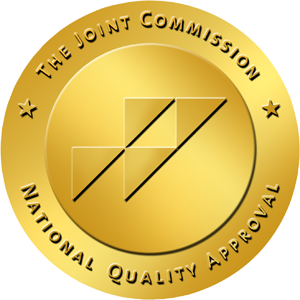Multivitamins for Vegetarians: Should You Take Them?
 A plant-based diet offers many health benefits. According to the American Heart Association, plant-based eating decreases the risk of conditions such as heart disease, high blood pressure, high cholesterol, obesity, and Type2 diabetes. Some essential vitamins and minerals are not present in plant-based foods. A study published in the National Library of Medicine showed that vitamin B12, calcium, iron, iodine, vitamin D, omega-3 fatty acids and zinc intake was low in adult vegetarians and vegans compared to meat-eaters.
A plant-based diet offers many health benefits. According to the American Heart Association, plant-based eating decreases the risk of conditions such as heart disease, high blood pressure, high cholesterol, obesity, and Type2 diabetes. Some essential vitamins and minerals are not present in plant-based foods. A study published in the National Library of Medicine showed that vitamin B12, calcium, iron, iodine, vitamin D, omega-3 fatty acids and zinc intake was low in adult vegetarians and vegans compared to meat-eaters.
Nutrients of Concern
Vitamin B12 is needed for red blood cell and DNA production and nerve function. Most people get their recommended intake of vitamin B12 from meat and dairy products. However, vegans are more likely to develop a vitamin B12 deficiency with symptoms such as fatigue or feeling lightheaded or weak.
Calcium supports heart and muscle function, bone health, and teeth. It also promotes blood flow and the release of hormones. Since calcium is found in dairy products, vegans may not get enough of it through diet alone. Calcium deficiency symptoms may include confusion, brittle nails, and fragile bones.
Iron helps red blood cells carry oxygen from the lungs to the rest of the body. It is found in both animal products and plant-based sources. The body does not easily absorb iron from plant-based foods. If iron deficiency anemia develops, symptoms can include chest pain or shortness of breath, cold hands and feet and fatigue.
Vitamin D contributes to bone health and immunity. It is found in certain foods such as eggs and fish, and the body produces it with the help of sunlight. People who have a vitamin D deficiency may experience aches, bone pain, cramps, and muscle weakness.
Omega-3 fatty acids help improve cardiovascular health, lower blood pressure and can reduce inflammation. Although they are present in several foods, these essential fats are mostly found in fish and can be hard for vegans to get enough from diet alone.
Zinc promotes the immune system, metabolism, and wound healing. It is present in chicken, red meat, and fortified breakfast cereals. Since the body easily absorbs zinc in meats, vegans may have lower levels of it. Symptoms of zinc deficiency may include appetite loss, unexplained weight loss and wounds that will not heal.
Iodine produces thyroid hormone. Iodine is found in eggs, dairy products, iodized salt, and seafood. Vegans may not get enough of iodine and are at risk for iodine deficiency, which can cause enlargement of the thyroid (hypothyroidism). A visible goiter (thyroid), difficulty swallowing and unexpected weight gain are all symptoms of low iodine levels.
How to Know if You Should Take a Multivitamin
Do you have concerns that you are not getting enough vital nutrients from a plant-based diet? Are you experiencing any symptoms associated with vitamin deficiencies? A blood test ordered by your doctor may be beneficial in showing which vitamins your body lacks.
Taking a multivitamin to supplement your plant-based diet can help you meeting the daily recommended intake of vital nutrients. Carmichael’s Retail Pharmacy locations carry vegetarian-friendly vitamins and supplements that include top brands such as Nature’s Blend ®, Nature’s Bounty®, Nature Made®, and Sundown®. Nature’s Truth® vegetarian-friendly gummies are also available for purchase.
Contact or visit a Carmichael’s Retail Pharmacy location to speak to a pharmacy representative about vegetarian multivitamin products available. If you are pregnant or have any underlying health conditions, consult your doctor before trying supplements.




 Accredited/Certified by The Joint Commission
Accredited/Certified by The Joint Commission